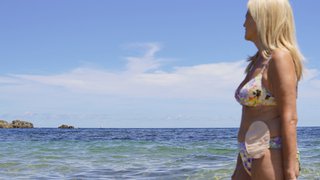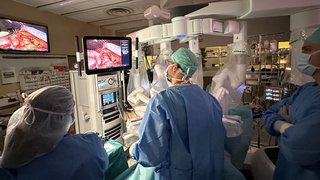
For the nearly 600,000 patients in the United States with end-stage renal disease, dialysis is necessary for survival.
About 93 percent of those patients receive hemodialysis (HD), a procedure that typically requires thrice-weekly trips to an outpatient dialysis center for treatments lasting three to four hours per visit. The remaining 7 percent receive peritoneal dialysis (PD), a no-needle procedure that patients can perform alone – at home, at work, or while traveling. According to UT Southwestern's Ramesh Saxena, M.D., Ph.D., an expert in both HD and PD, there are compelling reasons why more patients should be taking advantage of the PD option.
Kidney Dialysis
The remaining 7 percent receive peritoneal dialysis (PD), a no-needle procedure that patients can perform alone – at home, at work, or while traveling.
According to UT Southwestern's Ramesh Saxena, M.D., Ph.D., an expert in both HD and PD, there are compelling reasons why more patients should be taking advantage of the PD option.
“Patients survive better on PD, especially during the earlier years,” Dr. Saxena says. ”They have a better quality of life, and the procedure is cheaper.”
Dr. Saxena notes that PD is easier on patients because it mimics natural kidney function and offers greater flexibility because the equipment is portable and the process can be self-administered. All patients starting dialysis should, at the very least, be given the PD option, Dr. Saxena says. As Medical Director of UTSW's PD Program and the UTSW/DaVita Dialysis Center in Irving, Dr. Saxena ensures that patients and physicians alike receive the information they need. As a result, UTSW has one of the largest PD programs in the nation, with a usage rate that is five times the national average.
“No one type of dialysis is best for everyone, but more people clearly could benefit from PD,” Dr. Saxena says.
UTSW has joint ventures with two other Dallas-area DaVita Dialysis Centers, one in Oak Cliff and the other in East Dallas.
Appointments
To schedule an appointment with Dr. Saxena and determine if peritoneal dialysis is right for you, call 214-645-8300.










